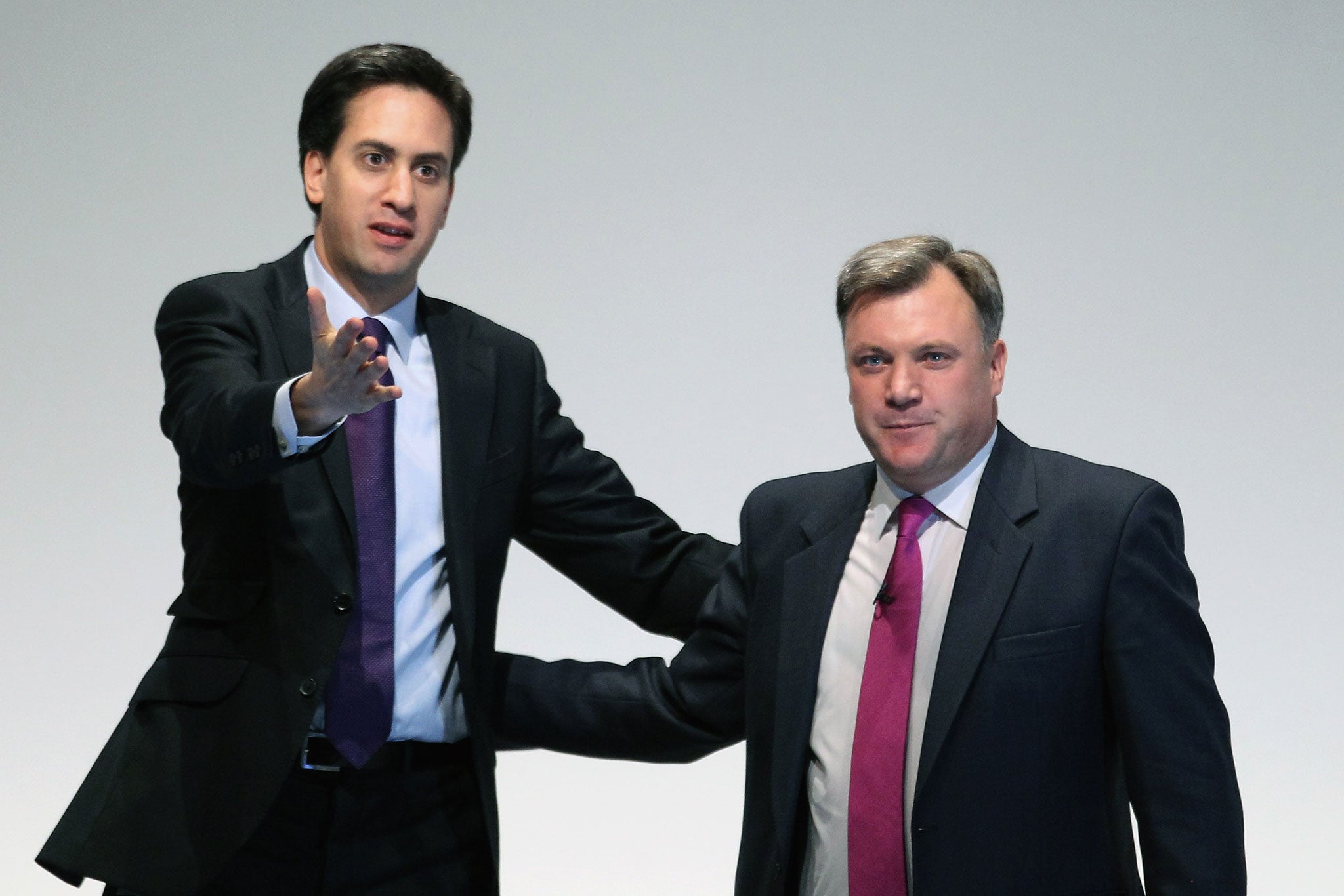As Osborne reels, why is Balls feeling the heat?
There are calls for the shadow Chancellor to be replaced - but Balls is one of the few politicians who has the economic experience to rise to the challenge of a crisis


Since George Osborne lost his Triple-A rating, I have read at least three columns calling for the resignation of the shadow Chancellor, Ed Balls. Perhaps Osborne should keep his fingers crossed that the bleak economic news keeps on coming if the reaction is a flurry of calls for the shadow Chancellor to resign. One, by the political biographer Anthony Seldon, was the subject of heated exchanges at Prime Minister’s Questions last week. Another suggested that Balls should be sacked “brutally”, so that Ed Miliband would get the credit for an act of ruthlessness. The chorus agrees that either Alistair Darling or David Miliband should fill this pivotal post, one that is almost as important as leader of the Opposition.
The chorus ignores context and romanticises the impact of alternative candidates. As shadow Chancellor Balls seeks economic credibility in the aftermath of Labour’s election defeat, a loss that was partly caused by a frighteningly deep economic crisis, this is an almost impossible challenge. There were intense doubts about whether Margaret Thatcher could win an election in the late 1970s, not least because memories were still fresh about the previous Conservative administration, the three-day weeks and the lights going out under its watch. In polls, the ebullient Chancellor Denis Healey was more popular than Thatcher’s shadow Chancellor, Geoffrey Howe, in spite of the economic gloom. Like Miliband and Balls now, Thatcher and Howe struggled to make sense of their party’s recent past, the most emotive terrain in politics.
Proved right
If this terrain were viewed more objectively, Balls has a formidable story to tell, in some ways remarkable. As a young adviser in the early 1990s, he was partly responsible for a framework of policies that secured a relatively stable economic climate for nearly a decade, the independence of the Bank of England, consistently opposing Britain’s membership of the Euro, helping to develop a strategy for necessary increases in public spending that would be electorally popular, accepted by markets and the media while keeping the Treasury on its toes. In the immediate aftermath of the 2010 election, Balls delivered a defining speech warning that if Osborne went ahead with his austerity package Britain would head back into recession. He did not do so as a reckless public spender but as a follower of Keynes and as a student of what happened in the 1930s when governments tragically followed a path similar to Osborne’s. He has been proven right.
But the recent past is such a dangerous place that Balls dares not go near there very often. Others who have managed to make a bigger leap away from it are seen as potential shadow chancellors, figures who currently have the luxury of being above the fray.
Obviously, David Miliband did not choose to be above the fray, but losing the leadership contest gives him a single advantage. Politicians acquire an aura of sorts when they step back, especially when there is such a mistrust of those on the front line. David Miliband can choose when to speak and on what issue. He makes good speeches when he does so, deep and yet punctuated with accessible phrases. But political life for a shadow chancellor is incomparably tougher. There are speeches, responses, policy linked to political calculation, principles bent towards expediency, and the need to reassure party, voters, media, business leaders and markets.
Contenders
David Miliband has not been tested in the seething furnace where economics meets politics and few survive for very long. Remember the return of Michael Portillo as William Hague’s shadow Chancellor? The media chorus hailed the appointment for about 10 seconds and then it all started to go wrong. In this case, once the media had declared the appointment of David as an act of genius, I bet there would soon be stories of Labour being led not by one weird brother, but two, and “they do not even got on with each other”.
In the case of Alistair Darling, I am not sure that Ed Miliband would have the chance of appointing him. Darling has a little more time to spend now in Edinburgh after a very long ministerial career. Would he give that up to take on the thorny remit of shadow chancellor? Cameron and Osborne pay him mischievous respect now. If he became shadow chancellor, they would point out that Miliband had replaced one architect of the financial crash with the actual chancellor in charge at the time. Once more, I can imagine the fickle chorus, after hailing the appointment as a masterstroke, soon sighing that he lacked the ferocious, energetic agility of his predecessor.
Balls is one of the few figures in British politics who has the experience and expertise to rise to the challenge of a historic economic crisis. But he has yet to find the language to explain his case – the opposite of Osborne, who is a poor Chancellor but a highly effective parliamentarian and someone who tries at least to be a storyteller, weaving a tale about sticking to the course. From the early 1990s, Balls’ role was often to supply the economic policies that made sense of political objectives and the language of the politicians. Now he is the politician in need of a narrative. The Keynesian economist must become a storyteller. But if anyone believes they could do better, they show a misunderstanding of the nightmarish task that would be quickly and brutally exposed.
Join our commenting forum
Join thought-provoking conversations, follow other Independent readers and see their replies
Comments